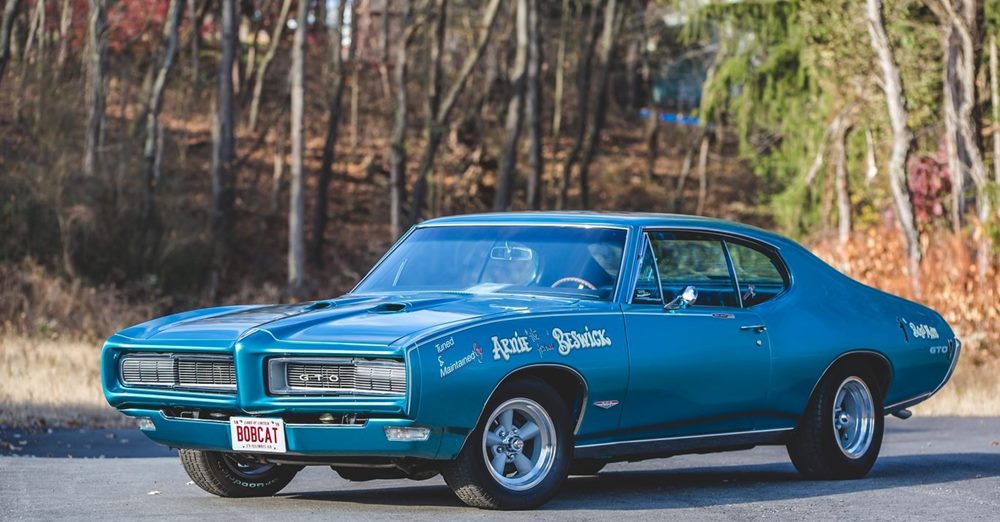When I grew up in Detroit, the population was over 1,200,000 people. I spent the next forty years living in Ann Arbor, population of about 120,000. Last summer, my wife and I moved to Brooklyn MI, population 1,188. Which is 25% smaller than my high school graduating class.

A few weeks ago we ordered takeout from Harold’s Place, a restaurant near our house. As I sat at the bar waiting for my order, the man next to me turned and said,
“What about that GTO!”
Amazingly, I knew exactly what he was talking about. The car was parked on the road beneath a big For Sale sign. “It’s beautiful. What do you know about it?” He beamed, “It’s a 1968 Pontiac with a Bobcat upgrade, giving it a 390 hp, 428 cubic inch [7.0 L], V8 engine. It’s too hot to handle for most boys nowadays.”
I don’t know what shocks me more: that he assumed I knew what he was talking about, or that I actually did know what he was talking about. We were in a restaurant 4 miles southeast of Brooklyn, and the GTO was parked 9.5 miles northwest of Brooklyn—13.5 miles away.
The next day I was waiting in line at the supermarket. The man in front turned around and asked, “What about that GTO?” I grinned,
“You mean the Bobcat upgrade with the 390 hp engine? It’s too hot to handle for most boys.”
Belonging
We all want to fit in. Not necessarily to the same group, but we want to belong to something. Some find our place in the chess club and some want to be on the first string of the football team. Some think both of those choices are stupid and belong to the “We’re too sophisticated to join any club” society. But we still long to belong.
Traditional cultures made it easy to fit in. You belonged to your family, and your family’s status was yours by right. If your family ran the local grocery, you were welcomed in the merchant class. But if your father was the town drunk, you were stuck, and the odds said that you would never become mayor. (Unless, of course, your father was both town drunk and town mayor.)
Modern culture’s approach to belonging gives everyone mobility, but it is based on entrance exams. Our parents may be lawyers, but we are not welcomed in that elite circle until we pass the State Bar. Today’s culture is achievement oriented.
We associate with our clubs either through education (getting a Computer Science degree) or experience (getting a History degree, and then coding software for ten years). Our fellowships are based on achieved knowledge, from our medical career to our beer-making hobby to our snobbish preferences for organic iced decaf almond-milk mocha cappuccino grande’s.
Shared Jargon
If we fail to gain the needed knowledge, we form connections through shared language:
- The conservative Presbyterian says, “I know my doctrine.”
- The progressive Presbyterian asks, “What’s a doctrine?”
- The Baptist says, “I never watch Netflix on Sundays.”
- The Amish asks, “What’s a Netflix?”
- The John Eldridge fan says, “I have a good heart.”
- The dispensationalist asks, “What’s a heart?”
In the absence of lifetime knowledge, we belong when we fake it with finely tuned jargon. Last week I bumped into a local pastor at my physical therapist. I said, “What about that GTO!” He turned to me in surprise and asked,
“What’s a GTO?”
Sam



 Should Christians Fear Thinking?
Should Christians Fear Thinking?
Leave a Reply